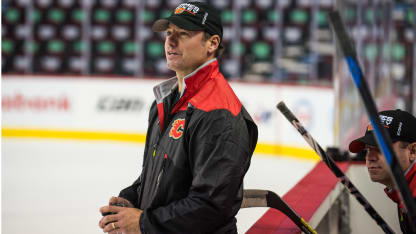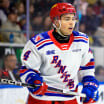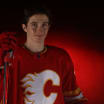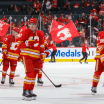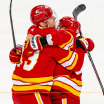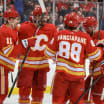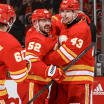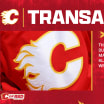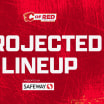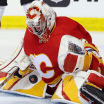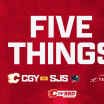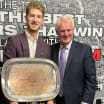The TV numbers were of an okay, if not must-see, variety. The format a strictly round-robin affair, no single-knockout playoff fixtures to add drama to the occasion.
So when, nearly three decades later, the Calgary Flames' assistant coach fires up the remote and tunes in to the current editions of the World Junior Hockey Championships, he can't help but shake his head.
"Yeah, a lot has changed,'' muses Gelinas.
"You know, it's always special to wear that jersey, to represent your country, but it was a bit different at that time.
"There wasn't nearly as much attention as the tournament gets today. Now, it gets treated like the Stanley Cup. The pressure, especially when you play for Canada, is immense. You know the whole country is watching you.
"We were proud and desperately wanted to win, of course, but I don't think we felt that to nearly the same degree back then. And the kids who play in the tournament today, their skill level is so high, so many of them are or are almost NHL ready. The games are great to watch.
"It's really amazing to see how much the whole thing has grown since I played in it."
That '89 Canadian junior edition was coached by Tom Webster, assisted by current NY Rangers boss Alain Vigneault and among its playing roster, Rod Brind'Amour, Mike Ricci and Eric Desjardins - along with Gelinas - would go on to lengthy, distinguished pro careers.
The Russians, though, arrived with an absolutely-stacked, to-die-for lineup that included Pavel Bure, Sergei Fedorov and Alexander Mogilny, at times deployed on the same line and who were, unsurprisingly, virtually impossible to contain.
The U.S. had as its main protagonist Jeremy Roenick and Mike Modano 1-2 in tournament scoring with 16 and 15 points, respectively. Also wearing the Stars and Stripes that year were Bill Guerin and John Leclari.
The Finns relied on the future Finnish Flash, Teemu Selanne, while the Czechs were led by soon-to-become New Jersey Devils' stalwart Bobby Holik.
"I remember I got hurt early in the tournament but I kept playing,'' recalls Gelinas. "We had a good team but the Russians … they had some incredible, incredible talent. That game they beat us (7-2), they scored some goals that just kind of left you going … 'Wow.'
"So many guys on that team would go on to play, and play well, in the NHL."
In the end, boasting a 6-1 record, Bure, Fedorov, Mogilny et al would collect an 11th WJC gold medal for their country, and the final one as the Soviet Union.
Canada finished fourth and out of the medals at 4-2-1, losing to the Soviets and Swedes while tying the Czech Republic.
That fall, to open the '89-90 season, Gelinas would join the Oilers for good from the QMJHL Hull Olympiques, formally beginning a big-league career that would encompass 18 campaigns, 1,270 regular-season games and 660 points.
"Looking back now,'' he concedes, "I do have one regret.
"I wish then, at the time, that I'd appreciated it more, being able to play in a tournament like that.
"But, you know, you're a kid, you're playing. You don't stop and really take it all in.
"It wasn't as big, as famous, as watched, as it is now. It's always been a really unique experience for young players, though."
